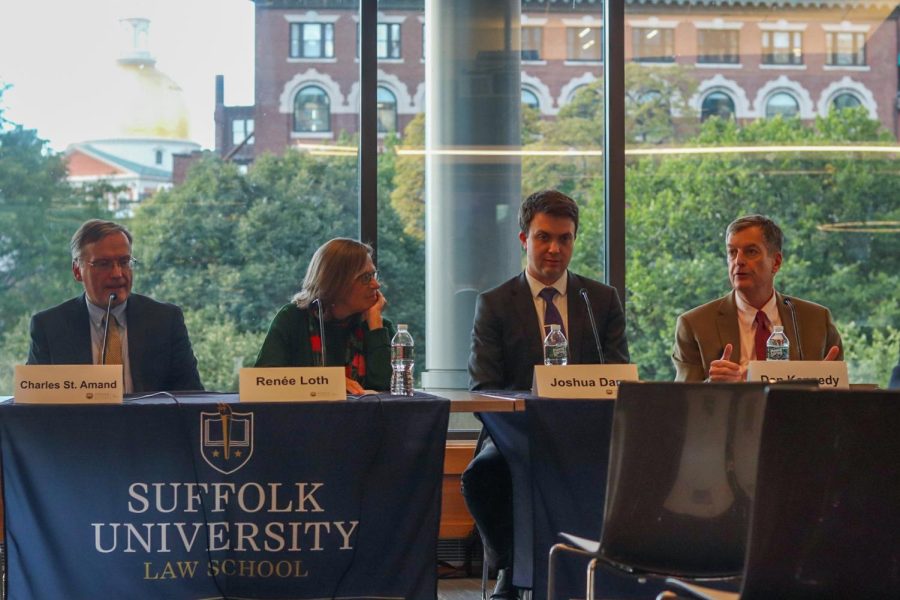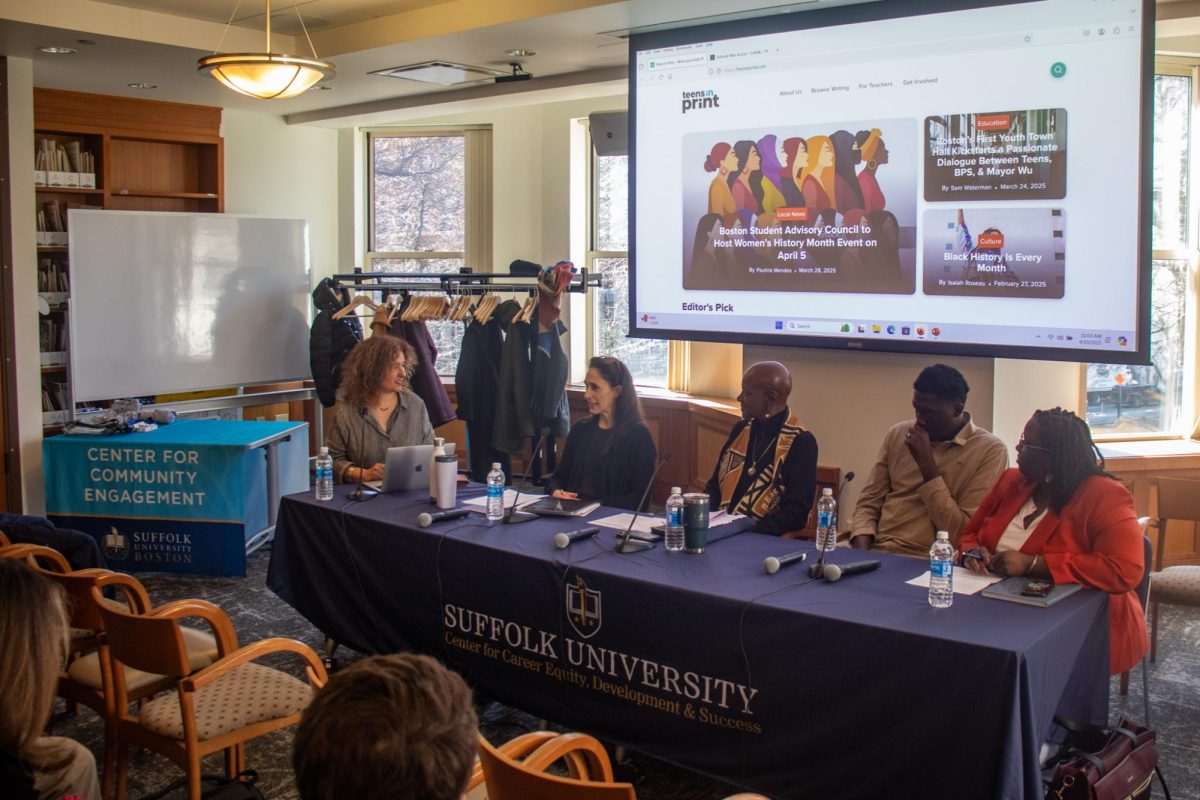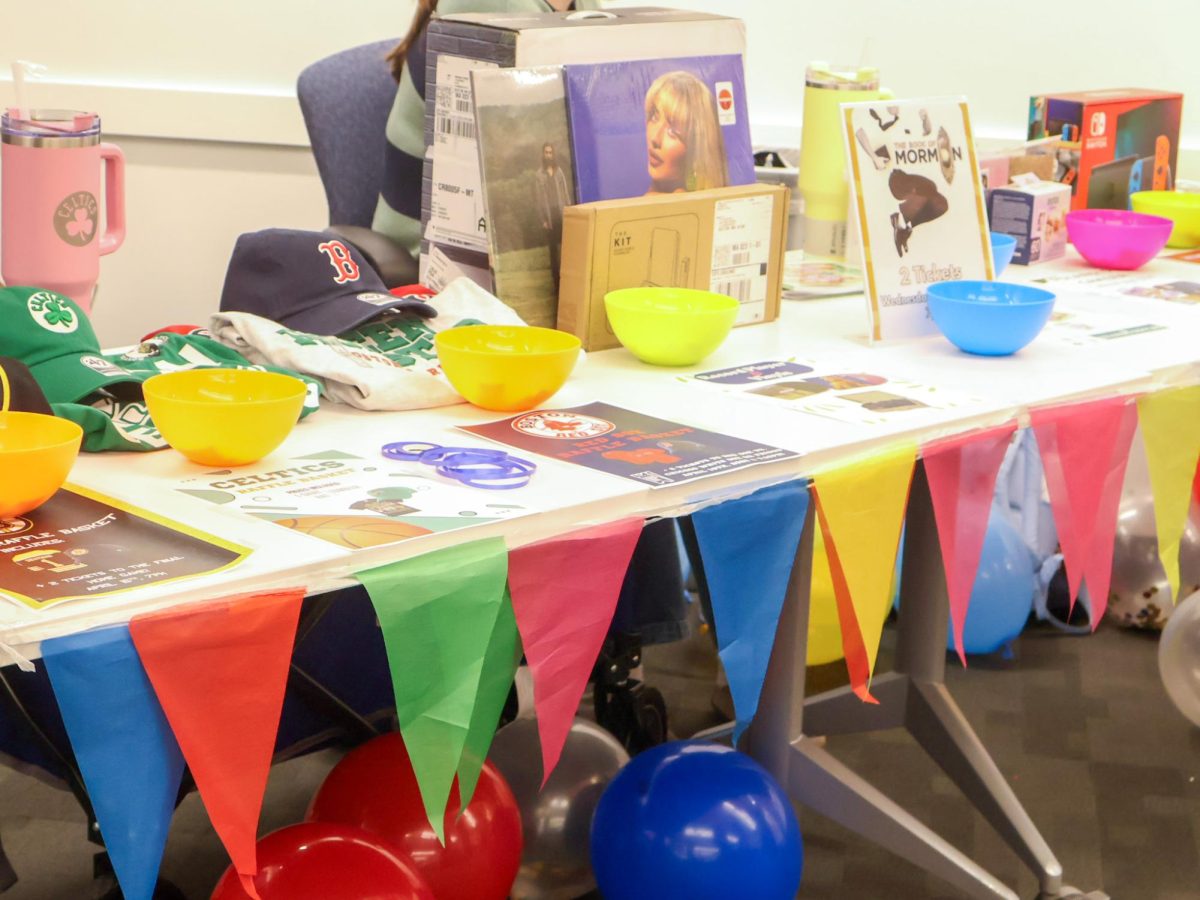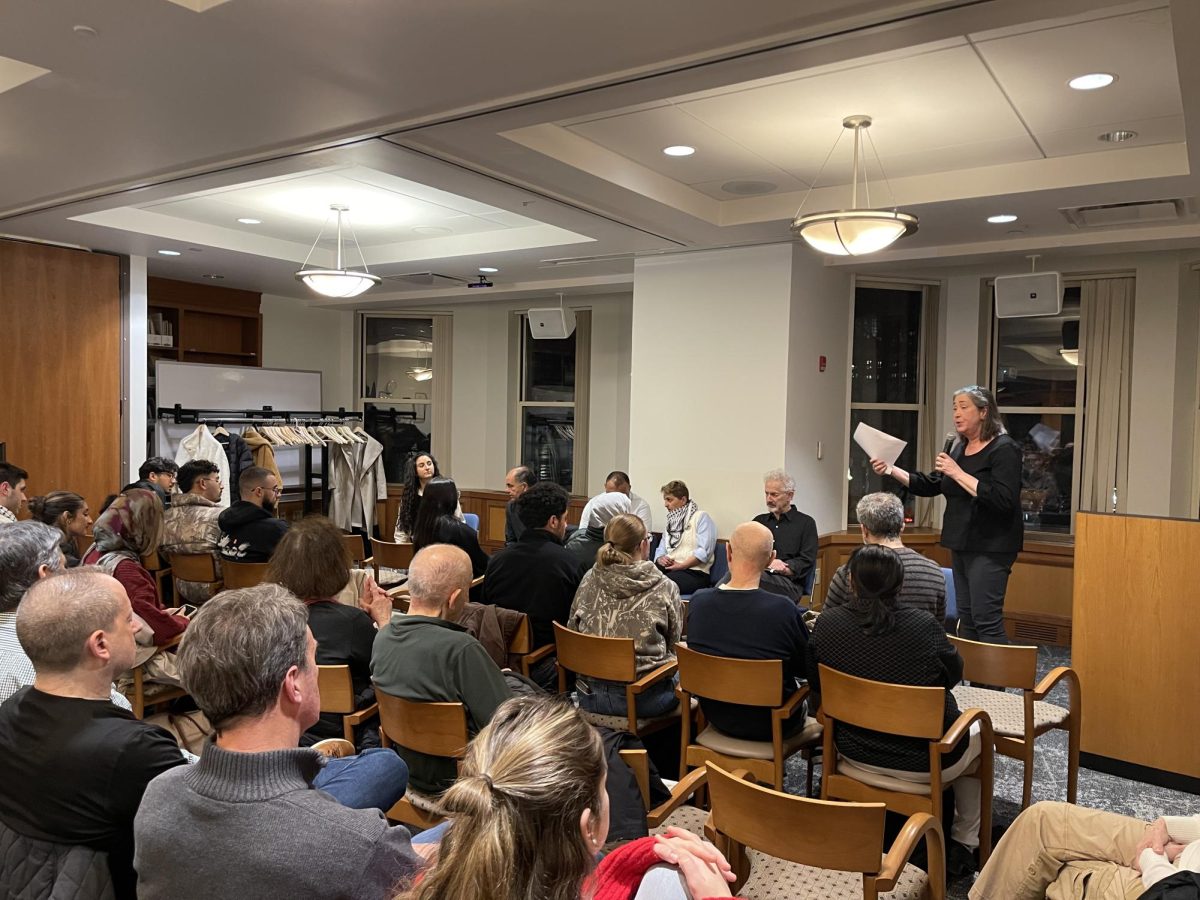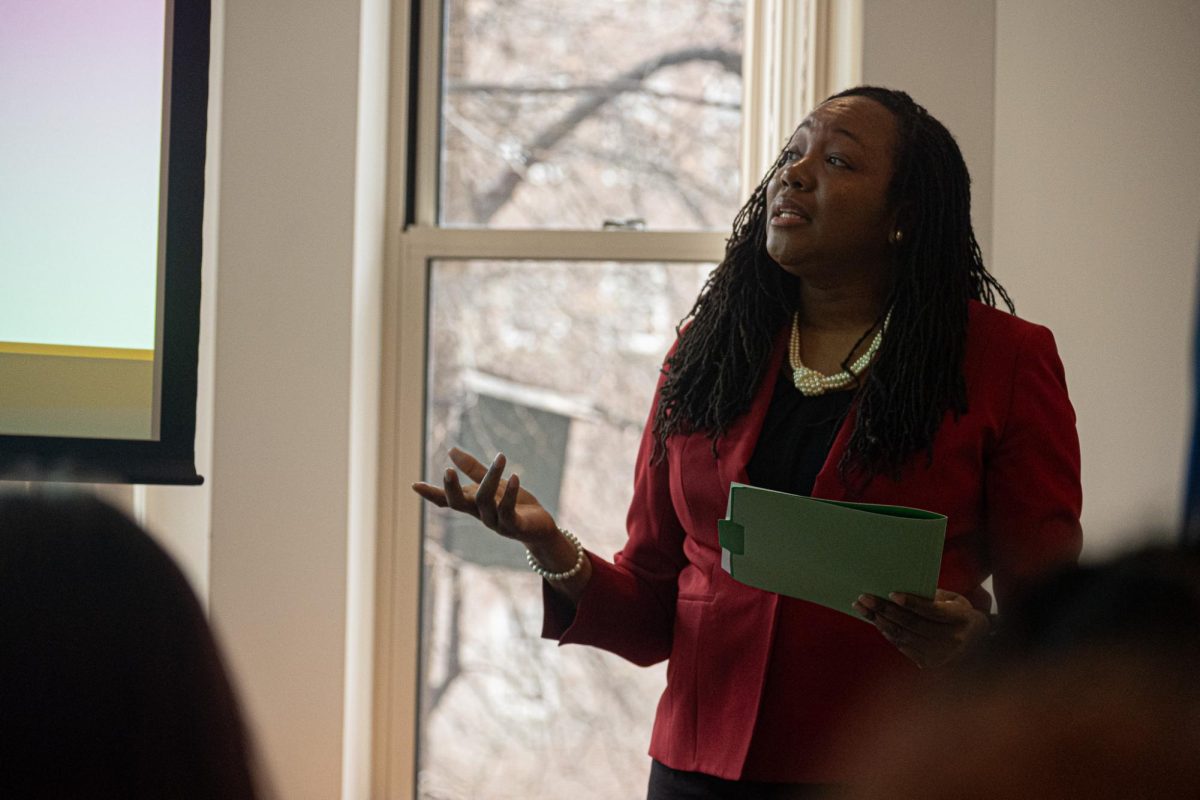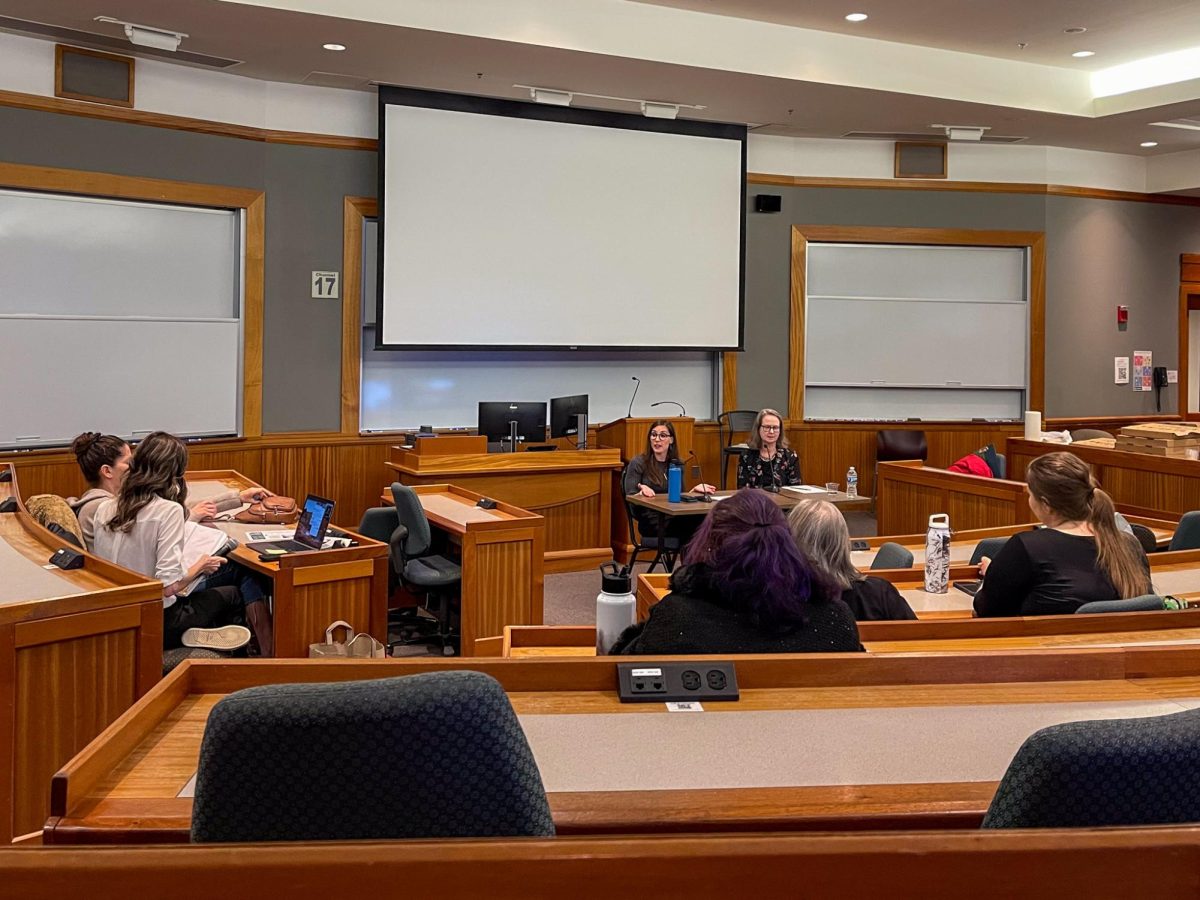Suffolk University Law School and the Ford Hall Forum hosted a panel discussion about the decline of local news and the rise of polarization in the United States on Sept. 29. The event was held in Sargent Hall’s Sky Lounge and was free and open to the public.
The panel consisted of Joshua Darr, an associate professor of political science at Louisiana State University, Renée Loth, an opinion columnist for The Boston Globe and former editor of the Globe’s editorial page and Charles St. Amand, the practitioner in residence for Suffolk’s Communications and Journalism department. St. Amand is also the adviser to The Suffolk Journal.
The panel was moderated by Dan Kennedy, a journalism professor at Northeastern University.
Kennedy introduced the panel by explaining the rapid decline in local newspapers since the emergence of the Internet and large media corporations that have absorbed local papers into their conglomerates, which has led to many areas in the U.S. becoming “news deserts” without access to a local newspaper. Although information about national and international current events is readily available at the touch of a button, coverage of local issues has greatly declined as the political climate has become more polarized in recent years, according to Kennedy.
“Community journalism, at its best, is a way to bring people together over common goals,” Kennedy said.
Darr spoke about his research into the correlation between local newspaper coverage and polarization. He found that after a newspaper in Calif. removed its editorial section on national politics and focused its opinion pieces on community issues, local readers reported they felt less disconnected from members of the opposing party.
“Polarization slows when newspapers become more local,” Darr said.
Loth emphasized that editorials on national politics are usually similar no matter where you read them, whether it be in your local paper or a national paper like the New York Times. She said that while national politics applies to people in a way that local politics doesn’t, papers that are dedicated to covering local politics develop a more distinct reputation, which can be key to them surviving in the competition with massive media outlets.
Reporting on local issues not only defines a paper’s quality, but is important for the social climate of the area the paper covers, St. Amand said. As a professor, he said that journalism students cannot discredit the importance of local news, even when covering national events can be more appealing for journalists seeking to make their mark on the industry.
“Journalism is all about social justice,” St. Amand said.
Follow Leo on Twitter @leowoods108


